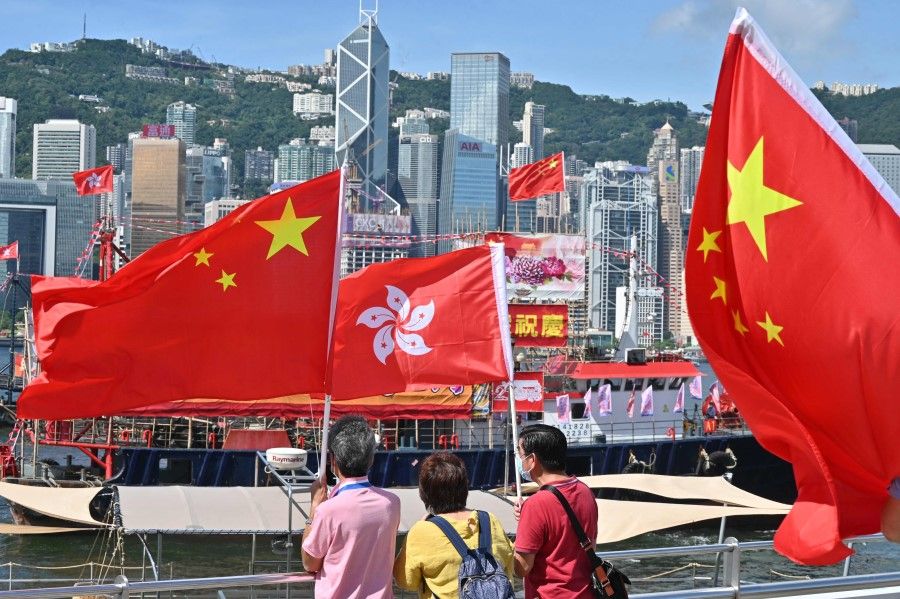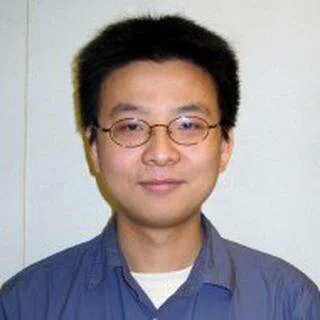'New Hong Kongers' entering politics must act in the interests of all Hong Kongers
Hong Kong's incoming Chief Executive John Lee has nominated the next batch of senior officials, who have been duly appointed by China's State Council. Many "new Hong Kongers" are gradually making their way into politics through various channels, facilitated by the central government in Beijing, who are not satisfied with the pro-establishment camp in Hong Kong. But can these new Hong Kongers show that they have the interests of all Hong Kongers at heart?

On 19 June, China's State Council approved 26 key officials of the next Hong Kong government as nominated by incoming Chief Executive John Lee. As the names of the candidates have been circulating widely even before that, the list of officials was not especially surprising, but many people took note of the background of Sun Dong, the designated head of the Innovation, Technology and Industry Bureau.
Sun Dong, Chair Professor at the Department of Biomedical Engineering at City University of Hong Kong, was born in Beijing. He has lived in Hong Kong for over 20 years but his main language is Mandarin. This "new Hong Konger" was just sworn in as a member of the Legislative Council (LegCo) early this year.

With the new designation, Sun will become the first "Hong Kong drifter" (港漂) to become a bureau head after Hong Kong's return. His announcement that he would be resigning from the LegCo to join the next leadership team of the Hong Kong government delighted many new migrants from mainland China, who were already seeing him as their pride.
Rise of 'New Hong Konger' in domestic politics
Hong Kong is a city of migrants, and in recent years has attracted many young, well-educated Hong Kong drifters to live and work there. They typically excel in the finance, business, law and other sectors, but find it difficult to integrate into Hong Kong society due to cultural differences, and even more so on the political level.
For years, Beijing was not happy about the lack of ability of the pro-establishment camp in Hong Kong, feeling that it has not won over mainstream sentiment, despite the resources put in.
Over the past few years, from movements against "locusts" - a derogatory term for mainland Chinese in Hong Kong - and parallel importers, to the anti-extradition movement, time and again, mainland Chinese have been targeted and even attacked by demonstrators in Hong Kong.
The situation changed with the furore over the anti-extradition law in 2019.
After Hong Kong was returned in 1997, most Hong Kongers supported the pro-democracy camp, which usually gave it an advantage in elections against the pro-establishment camp. For years, Beijing was not happy about the lack of ability of the pro-establishment camp in Hong Kong, feeling that it has not won over mainstream sentiment, despite the resources put in.

From the anti-extradition movement three years ago, Beijing found that some pro-establishment figures were not firm in their political stand and easily gave in to the opposition. So, over the past few years, it has started to give key positions to new Hong Kongers deemed "loyal and professional".
In 2020, a group of Hong Kong drifters in the financial sector established the Bauhinia Party, with the aim of recruiting 250,000 members. As the party leaders have close links to Beijing, the sentiment is that Beijing does not trust the pro-establishment camp and is clearly using another group of people to control the political situation in Hong Kong. Unfortunately, the Bauhinia Party does not have much of an image and is not very popular, and is not really growing.
To some extent, Sun Dong being the first Hong Kong drifter to become a bureau head shows that new Hong Kongers have made inroads in the last two years in penetrating the political arena through other means.
In fact, in Hong Kong's LegCo elections late last year, traditional democratic parties such as the Democratic Party and the Civic Party were absent. Many new Hong Kongers took the opportunity to join the election, marking the first time the group took part in the LegCo election after Hong Kong's return.
... new Hong Kongers who are "both red and expert" (又红又专, both socialist-minded and professionally qualified) are slowly gaining prominence...
Apart from Sun, other Hong Kong drifters such as Gary Zhang Xinyu, Wendy Hong Wen and Erik Yim Kong were elected into the LegCo with Beijing's support. Zhang from New Prospect of Hong Kong, a political party of mainly mainland Chinese living in Hong Kong, even obtained nearly 29,000 votes to win a seat in the New Territories North constituency.

Observably, new Hong Kongers who are "both red and expert" (又红又专, both socialist-minded and professionally qualified) are slowly gaining prominence, and after Sun, there will be many more lawmakers and officials who use Mandarin as their first language making their mark.
Energising Hong Kong's political scene
The participation of "new Hong Kongers" in politics has injected new energy into Hong Kong's political scene, which has long been dull and boring. Over the past six months, the performance of some "new Hong Kongers" elected into the LegCo did not pale in comparison to the local pro-establishment lawmakers, be it in terms of attendance or speech.
... these new Hong Kongers must also carefully strike a balance in advocating for the different needs of locals and new migrants.
These new Hong Kongers are also speaking up for Hong Kong drifters. For example, they led a joint petition in parliament urging the Hong Kong government to charge the same medical fees for Covid-19 treatment for both lawful visitors and Hong Kong residents. They also urged the government to distribute consumption vouchers to non-permanent professional residents who have paid taxes and made contributions but have yet to complete seven years of residence in Hong Kong. The latter has been successfully passed.
Clearly, hundreds of thousands of Hong Kong drifters have become the main source of votes for new Hong Kongers in the LegCo and it is only reasonable that the latter speak up for the needs of these potential voters. But these new Hong Kongers must also carefully strike a balance in advocating for the different needs of locals and new migrants.

Native-migrant tensions as a result of different interests have become a major social problem in many countries around the world, and Hong Kong is no exception. A clear example of friction was when Hong Kong experienced its fifth and worst Covid-19 outbreak in the earlier half of the year.
Back then, Zhang's suggestion that all lessons be suspended was accepted by the Hong Kong government and Hong Kong students' summer break was brought forward to mid-March. Many migrants from mainland China also brought their children back to the mainland to escape from the pandemic during this period.
On the other hand, these measures drew the ire of local parents, who could not bring their children back to the mainland like the Hong Kong drifters. They got upset that their children ended up wasting a lot of time doing nothing at home. Zhang's policy with the interests of the Hong Kong drifters at heart clearly created a lot of trouble for local residents.
In the long run, if Hong Kong drifters hope to exert more influence over Hong Kong society, they should take into consideration Hong Kong's overall well-being and not just focus on a certain group. More importantly, they need to prove that they are not using Hong Kong as a springboard but are committed to Hong Kong and are humbly acting in the interests of Hong Kong and not forcing the ideologies of mainland China onto Hong Kong.
Related: When 'new Hong Kongers' run the show, where do the old ones go? | First LegCo election under Hong Kong's new electoral system: Tough road ahead for non-pro-establishment candidates | It may soon be illegal to discriminate against mainland Chinese in Hong Kong | Overhaul of Hong Kong's electoral system: Is it still 'one country, two systems'? | Beijing's 'cleansing' of Hong Kong industries: Who will be the next target?





![[Photos] Fact versus fiction: The portrayal of WWII anti-Japanese martyrs in Taiwan](https://cassette.sphdigital.com.sg/image/thinkchina/3494f8bd481870f7c65b881fd21a3fd733f573f23232376e39c532a2c7593cbc)